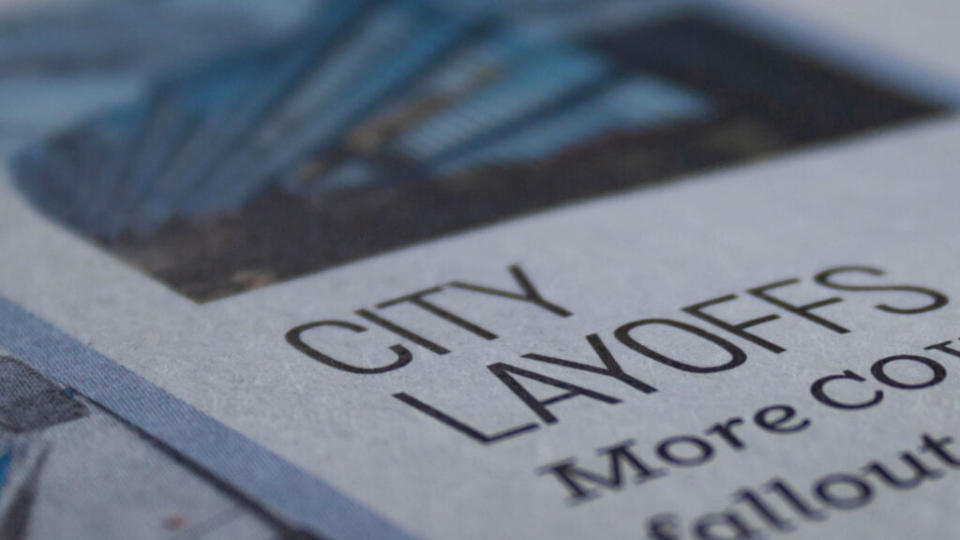What To Do Financially To Prepare for Unexpected Job Loss

Advertiser Disclosure: Most, but not all, products in our articles are from partners who may provide us with compensation. However, opinions expressed here are author's alone, not those of any bank, credit card issuer, airline or hotel chain.
I lost my dream job earlier this year without warning. I woke up on a Tuesday, fully prepared to finish a project that had been weeks in the making.
My first task of every work day was to check my calendar for meetings. Then I saw IT: stuck in between team syncs and one-on-one meetings with my boss was my biggest fear: a meeting casually titled “Offboarding.” Right when I was starting to feel comfortable, my life got turned upside down. Just two months after I had signed the offer letter, I was no longer employed.
Luckily, I had been financially preparing for a job loss (that moment) since my first day. The layoff was a shock and a disappointment, but it wasn’t the end of the world.
3 Steps That Financially Prepared Me for a Layoff

Call me cynical, but I’ve never bought into the idea of job stability. I saw nearly half of my neighborhood put up foreclosure signs during the Great Recession. Then I saw my friends lose jobs and have offers rescinded during the first months of COVID.
Related:
Can I Get a Personal Loan While Unemployed?
Places Where You Can Apply for a Personal Loan
When I went from freelancing full-time to working at a company, my main concern was preparing myself for the event that I lost that job. Here are the steps I took on Day One.
1. Put My Savings on Autopilot: Out of Sight, Out of Mind
This is a habit I developed when I first started earning money from freelancing. I didn’t make much initially, but I always stashed away at least $20 per week in my savings account.
That savings account was in a different bank than my checking account. I knew if I didn’t see it, I wouldn’t be tempted to spend it. Over time, I increased the amount I was saving.
When I started my most recent full-time job, I automated this process by sending my direct deposit to three different locations. Half went to my checking account, one quarter directly to my savings account, and one quarter directly into my Roth IRA for investments.
Most employers let you do this directly in their payment management system. But if I didn’t have this option, I would have automatically transferred a portion of my checking account money to the other accounts.
2. I Already Knew What I Could Cut Out of My Budget
Budgets are plans for your money. I recommend always keeping a budget, even if you’re in a position to splurge.
When I am happily employed, my budget includes an amount for eating out at restaurants, taking trips with friends, and saving up for big purchases. When I got laid off, I looked at my budget to understand where I could save.
I looked at where my money was going and created a new plan for it — a new budget.
Instead of spending $400 at restaurants every month, I knew I’d be satisfied only going out to eat twice a week. That saved me about $200 per month. And while I absolutely love traveling, I knew I could drive to closer destinations while I saved up credit card points to buy plane tickets. That alone saved me thousands.
I didn’t try to cut out everything or make my life miserable. Knowing what I was willing to part with before I had to do it kept me from panicking. I simply rearranged my budget and continued with my life.
3. Diversified My Income With Freelancing (Kept My Side-Hustles)
This is the pillar of my financial health and mental well-being. Knowing that I can pay my bills through freelance work keeps me from stressing out about layoffs or looking for a new full-time job when I have a job.
Before signing an offer letter, I always ask recruiters about policies regarding freelancing while working. It’s important to me to keep at least one freelance client, even while I have a full-time job. It only takes me a few extra hours per week, and it keeps my freelance network alive.
Read Next: Best Online Side Hustles for Extra Income
When I learned that I was being laid off, I was able to reach out to my current and past clients for referrals to other projects. As a bonus, I also have something to put on my resume if it takes me longer than expected to find a new full-time job.
Almost anyone can find freelance work nowadays. Websites like Upwork and Fiverr are great for remote opportunities.
If you prefer non-digital work, local Facebook groups and apps like Nextdoor are great for finding short-term gigs.
Financial Preparation Turns Layoffs Into Breakups
Layoffs are never easy, but being financially prepared keeps them from being overwhelming. Because I took care of my money when I was employed, it is now taking care of me. I have time to breathe, process the changes, and look for a new job — without the anxiety of “making ends meet.”
If you’re worried about your job, the best thing you can do is look at what you’re willing to cut down on spending and save what you can (start with $20 per month!).
If you have the time, you can also diversify your income by offering your skills and services through apps and websites. Many freelance websites can help pad your bank account and tie you over when looking for a job.
Great Deals and Bonuses to Check Out on Slickdeals Money:
Best Checking and Savings Account Bonuses and Promos This Month
Best High-Interest Savings Accounts This Month: Compare APY and Features

 money
money 